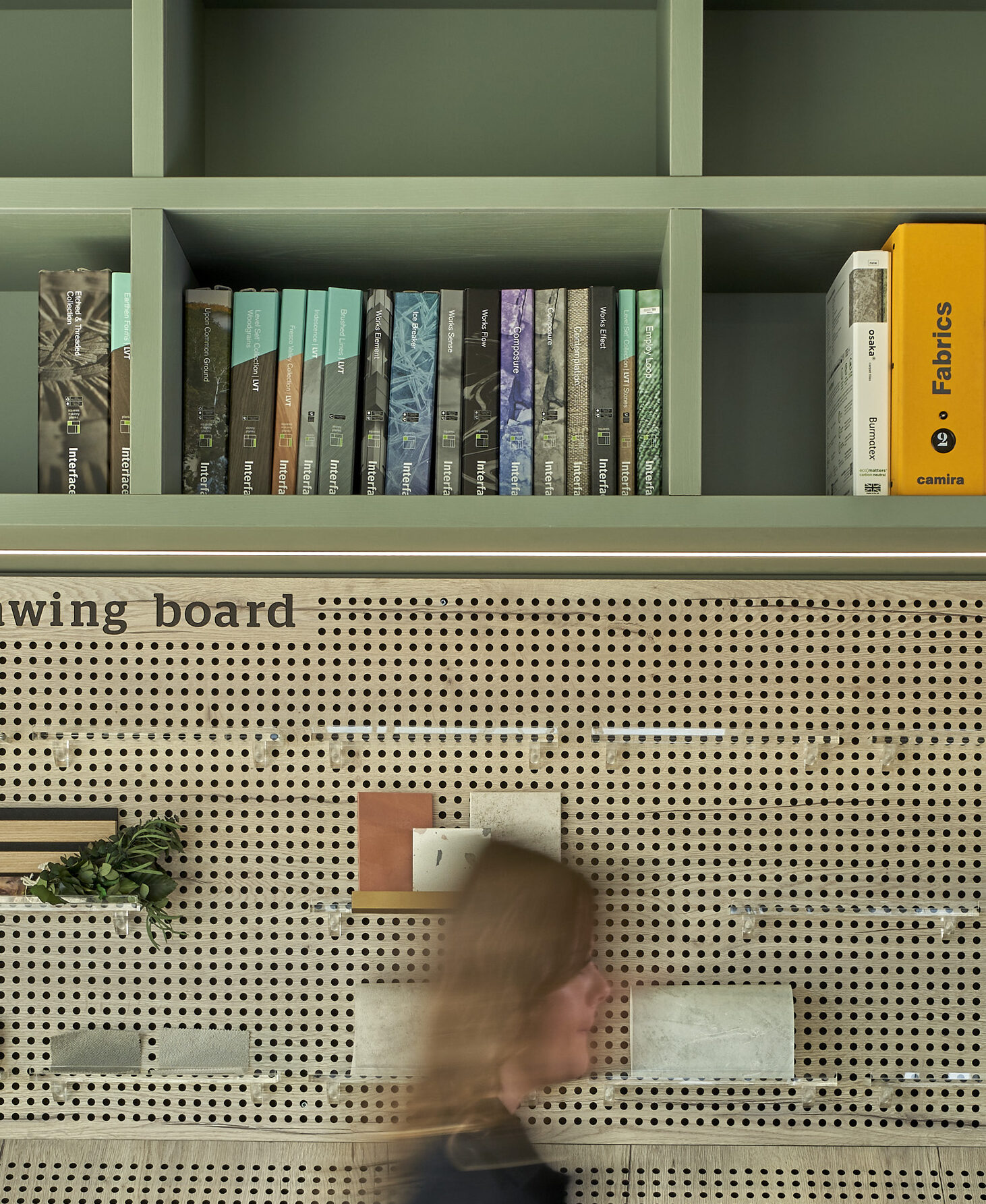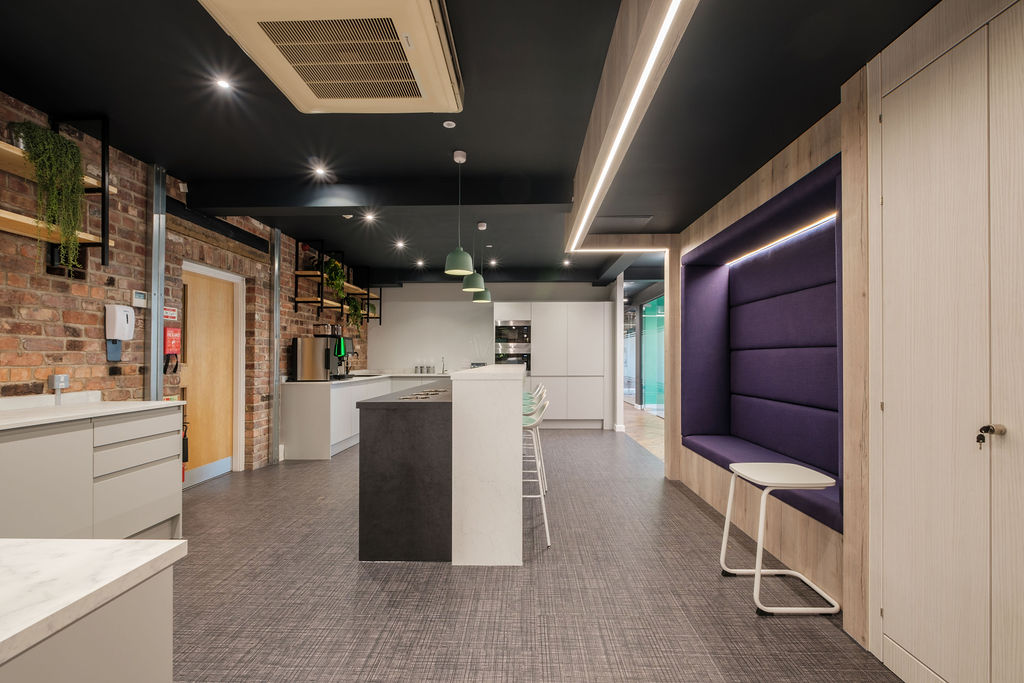
Industry Insight
2026 Office Refurbishment Guide

Within the office environment the most important factor to ensure that all employees are happy and comfortable is the colour temperature we are exposed to.
Modern day employees can spend 40 hours+ in the office – taking into consideration your employees wellbeing allows the business to reach the goals and results a business requires.
Within office design there are certain tones used specifically depending on the area of the office. For example, in breakout rooms or relaxation spaces there is a use of warm tones. This creates a sense of comfort and relief where employees can destress and recharge. Meeting rooms and conference spaces mid tones such as blue are used as it is welcoming yet promotes alertness. For the rooms where employees need to brainstorm or cultivate inspiration, cold tones are typically used. These tones are proven to improve mood and productivity whilst also reducing fatigue.
Boosting your employees’ energy can be achieved through various methods. Ensuring ample natural light flows through the office is crucial. If this is not reasonable, alternative approaches can still meet the essential requirements.
Incorporating natural light into your workspace can lead to elevated mood, enhanced eye health, and improved sleep. To optimise the amount of natural light in your office, consider adopting an open-plan layout or replacing partition walls with glass partitions. This design choice enables the seamless flow of light throughout the workspace.
Task lighting is the use of any source of direct lighting used for a certain task that allows intricate work. It can illuminate small areas which reduces eye strain, which results in improved eye care. The classic example of a task light is a lamp. Floor lamps are ideal for brightening up a corner or chair. There are also different uses such as under-cabinet lighting in breakout areas Too improve the aesthetic of the space whilst allowing illuminated areas that do not require space.
Ambient lighting is the foundational source of lighting in a room. Taking ambient lighting into consideration is crucial as it has the ability to make a room feel and look more inviting. Other sources of lightning are chandeliers, pendants, or even ceiling bulbs. This type of light can be created in a decorative cluster or left individual to make a statement in the room and they can help cast an overall glow to an area.
Smart lighting uses advanced technology that operates through Wi-Fi, Bluetooth, or both. Smart lightbulbs are, so far, the most popular and common residential and commercial markets. They offer different features, motions, colour customisation, all to your preference. Smart lighting can be beneficial to the workplace, as it creates a more adaptable and energy-efficient workspace. It can reduce energy usage and they have a longer life span that the traditional lighting. The ability of the lighting element to dynamically modify both colour and temperature in the environment ensures that employees experience enhanced well-being, as it is personalised to meet their preferences.
In conclusion, the implementation of appropriate lighting in an office setting can increase substantial advantages for employees. The integration of smart lighting not only enhances adaptability to the work environment but also plays a pivotal role in elevating mood and boosting productivity in the workplace.